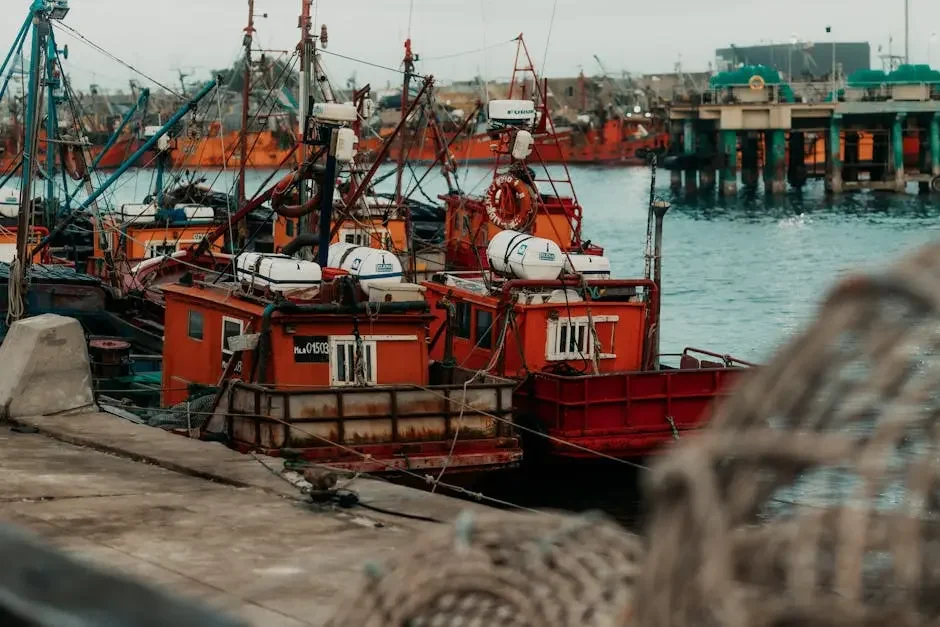7 Tips for a Successful Big Game Fishing Charters Adventure
Embarking on a big game fishing charter can be one of the most thrilling experiences of your life. With the right preparation, you can enhance your adventure and increase your chances of landing that trophy fish. Here are seven essential tips to ensure your big game fishing charter is a resounding success.
1. Choose the Right Charter Service
Research various fishing charter services in your area. Look for reputable companies with experienced crews that provide the right equipment and tackle for big game fishing.
Don't hesitate to read reviews and testimonials from past customers, as these can give you insights into the charter's reliability and customer service. Additionally, consider reaching out to each company to ask about their experience in targeting specific species of fish. This can help you determine which charter is best suited for your adventure. Remember, your fishing experience heavily depends on the quality of service you receive.
Furthermore, inquire about the charter's safety measures and the type of fishing licenses they hold. A professional charter service should prioritize your safety and adhere to local fishing regulations. Understanding their policies will ease your mind and make the experience more enjoyable.
2. Understand the Best Fishing Seasons
Different species of fish have specific seasons, and understanding these can significantly boost your chances of a successful catch. Research the best times to target your desired species and plan your charter accordingly.
For instance, if you're after marlin or tuna, knowing their peak migration seasons can make all the difference. Additionally, local fishing reports and forums can provide real-time updates and insights from experienced anglers in your area. Knowing when to fish is half the battle won!
And don't forget weather patterns! Changes in weather can affect fish behavior, so be prepared to adapt your plans if necessary. Enthusiasts know that some of the best fishing happens right before or after a storm. It's all about being in tune with nature.
3. Prepare the Right Gear and Equipment
Make sure you have the necessary gear, including rods, reels, and tackle suitable for big game fishing. Your charter may provide equipment, but it's good to check in advance. In many cases, you might prefer to use your own gear, which can enhance your comfort and confidence during the adventure.
Be sure to double-check the charter's recommendations and guidelines for gear specifications. The right tackle can depend on the species you are targeting, and using a line that is too light can result in missed opportunities. But remember, too heavy a setup may make the experience less enjoyable, especially if you're not prepared for battling larger species.
Lastly, don’t forget the small essentials! Bring along tools like pliers, a sharp knife, and bait storage. These items may seem minor, but they can be the key to making your fishing day smoother and more successful.
4. Dress Appropriately for Your Adventure
Wear appropriate clothing and footwear. Sun protection, such as hats and sunscreen, is crucial, along with comfortable layers to adapt to changing weather conditions.
Consider moisture-wicking fabrics that keep you cool while providing protection from the sun. It might be bright and sunny when you set out, but on the water, temperatures can fluctuate, particularly in the early morning or late evening. Therefore, layering is key. A light jacket or long-sleeve shirt can guard against chilly winds.
Lastly, ensure your shoes offer good grip and aren't slippery, especially when maneuvering around the deck of the boat. Comfort and safety are paramount, and being well-dressed will allow you to focus on the thrill of the catch!
5. Stay Hydrated and Energized
Fishing can be physically demanding, so drink plenty of water and bring along snacks or a light meal to maintain your energy levels throughout the day.
It's easy to lose track of how much you're drinking when you're out on the water, but dehydration can sneak up on you, especially under the sun. Consider using a reusable water bottle to keep track of your intake and fill it up regularly.
I recommend packing healthy snacks like nuts, energy bars, or fruits. These options are not only nutritious but also provide a quick energy boost without weighing you down. Staying energized will help you remain focused and ready for action when that big one decides to bite!
6. Learn the Basics of Big Game Fishing Techniques
Familiarizing yourself with common techniques can enhance your fishing skills. Understand how to cast, reel, and set the hook effectively to maximize your fishing success.
Consider investing some time in online tutorials or even a quick class before your trip. Techniques like trolling or jigging require specific methods, and knowing these will prevent chaos when you're ready to strike. More importantly, understanding how to read the water and work with your environment can lead to more successful outings.
Don't hesitate to ask your charter's crew for guidance; experienced captains and crews love to share their knowledge. Embrace the learning process to not only improve your catch but also to enjoy the experience to the fullest.
7. Enjoy the Experience and Be Patient
Remember that fishing is as much about the journey as it is about the catch. Stay patient, enjoy the scenery, and appreciate the chance to connect with nature.
Every casting slip or hour of waiting can build anticipation for that monumental moment when you finally hook a big one. A successful angler is one who learns the art of patience. Bring along a camera or journal to capture the breathtaking landscapes or the joyful interactions with your fellow anglers. These moments are treasures that are just as important as the fish themselves.
Combine your fishing efforts with laughter, stories, and camaraderie; those shared moments on the water can often become the most cherished memories. Whether celebrating a catch or simply enjoying a day out, keep your spirits high and savor every second.

